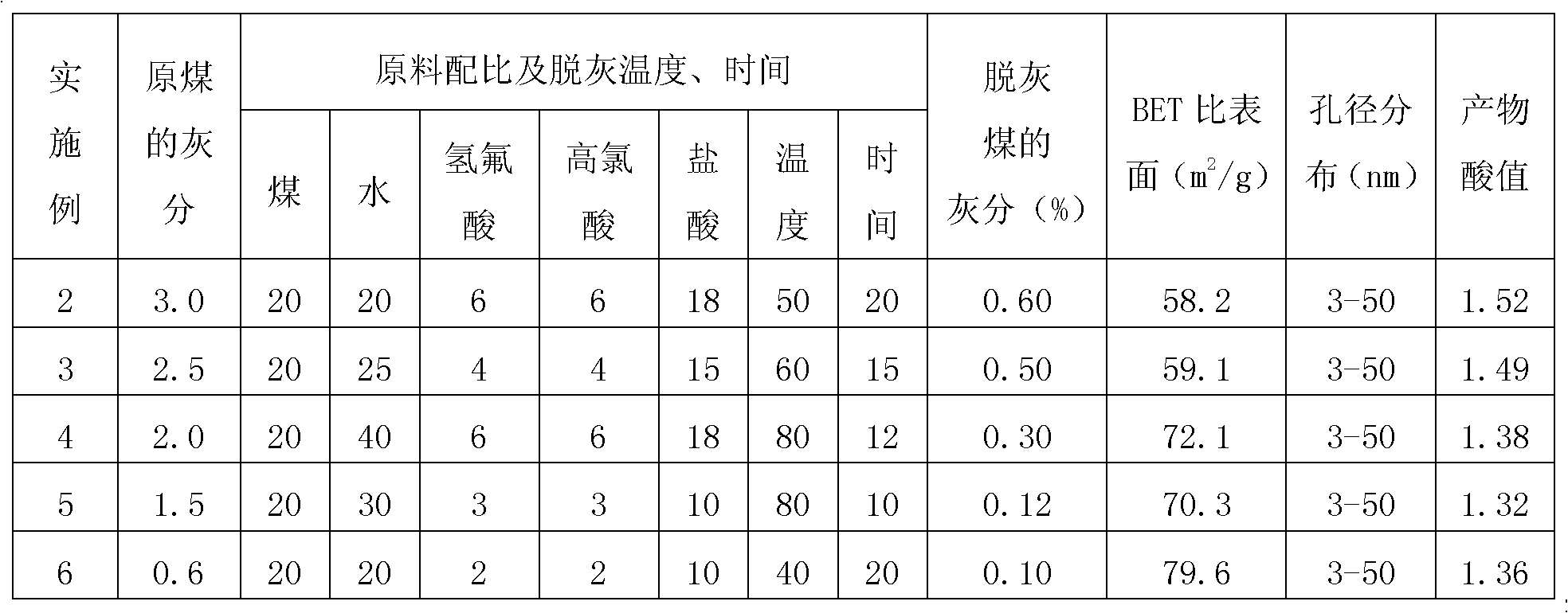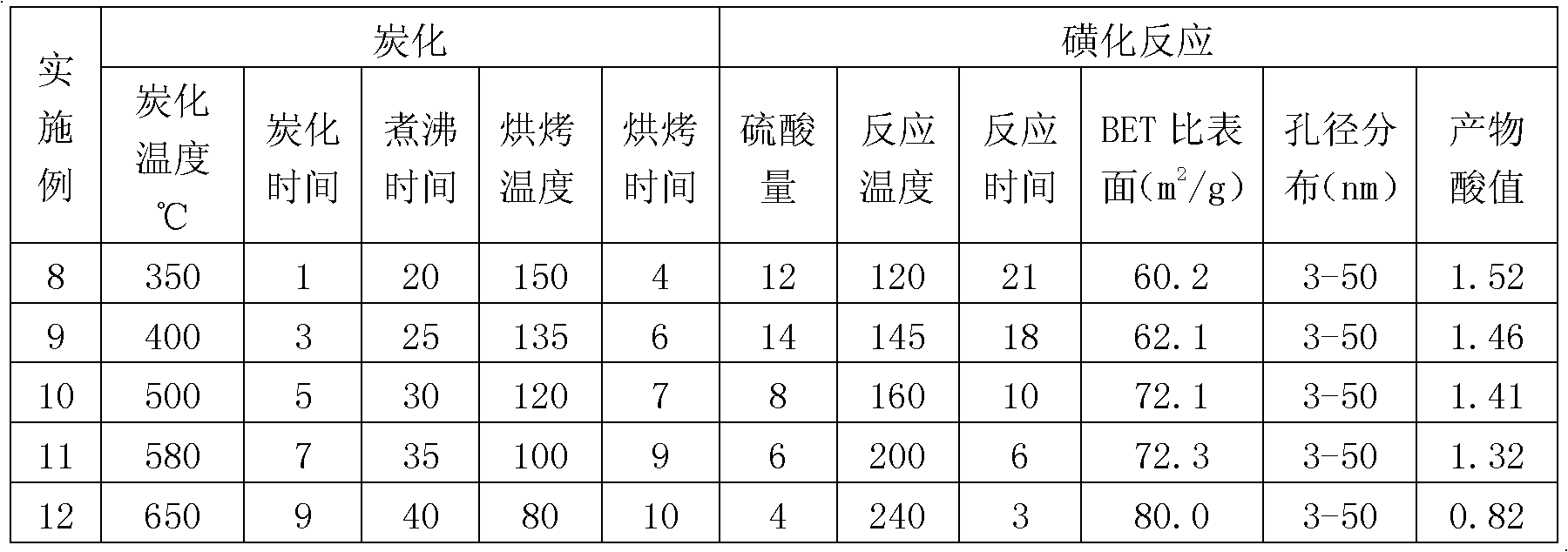Carbon-based solid acid catalyst and preparation method thereof
A carbon-based solid acid and catalyst technology, which is applied in chemical instruments and methods, physical/chemical process catalysts, organic compounds/hydrides/coordination complex catalysts, etc., to achieve cheap and easy raw materials, increased specific surface area, and easy The effect of recycling
- Summary
- Abstract
- Description
- Claims
- Application Information
AI Technical Summary
Problems solved by technology
Method used
Image
Examples
Embodiment 1
[0016] The first step is the preparation of the precursor of modified coal: 20g of Taixi coal with 3.5% ash content is pulverized to a 200-mesh sieve, then placed in a polytetrafluoroethylene beaker and measured at 30:4:4:15 Add distilled water, hydrofluoric acid with a mass concentration of 40%, perchloric acid with a mass concentration of 99%, and hydrochloric acid with a mass concentration of 36% in weight ratio. After stirring evenly at room temperature for 24 hours, filter and wash with water until it is neutral. Drying at ℃, the measured ash content is 0.61%;
[0017] The second step, compounding: mix and knead the deashed Taixi coal, sodium humate as a binder, calcium oxide as a pore former and distilled water at a mass ratio of 100:25:8:40 Evenly, after natural air drying, put it in an oven and bake at 120°C for 2h, cool to room temperature, and then grind to below 200 mesh for use;
[0018] The third step, carbonization: send 20g of the obtained compound into a tube furna...
Embodiment 2-7
[0022] On the basis of the process steps of the above-mentioned Example 1, the step 1: the preparation conditions of the precursor of the modified coal are changed, and the process technical conditions of the other steps remain unchanged. Examples 2-6 are shown in the following table.
[0023]
[0024] In the above embodiment, the unit of ash content of raw coal is mass percentage, and the amounts of coal, water, hydrofluoric acid, perchloric acid, and hydrochloric acid are measured by weight. The concentrations of hydrofluoric acid, perchloric acid, and hydrochloric acid are the same as in Example 1. The unit of temperature is °C, the unit of time is hour, and the unit of product acid value is mmol / g.
Embodiment 7-12
[0026] On the basis of any of the above 2-6 embodiments, only the process conditions in the carbonization and sulfonation steps are changed, and the specific implementation mode is shown in the following table on the basis of the conditions of other steps unchanged;
[0027]
[0028] The specific implementation of using the carbon-based solid acid catalyst obtained in the above-mentioned examples to catalyze the ketal (aldehyde) reaction is as follows:
PUM
| Property | Measurement | Unit |
|---|---|---|
| specific surface area | aaaaa | aaaaa |
| thermal decomposition temperature | aaaaa | aaaaa |
| particle size | aaaaa | aaaaa |
Abstract
Description
Claims
Application Information
 Login to View More
Login to View More - R&D
- Intellectual Property
- Life Sciences
- Materials
- Tech Scout
- Unparalleled Data Quality
- Higher Quality Content
- 60% Fewer Hallucinations
Browse by: Latest US Patents, China's latest patents, Technical Efficacy Thesaurus, Application Domain, Technology Topic, Popular Technical Reports.
© 2025 PatSnap. All rights reserved.Legal|Privacy policy|Modern Slavery Act Transparency Statement|Sitemap|About US| Contact US: help@patsnap.com



